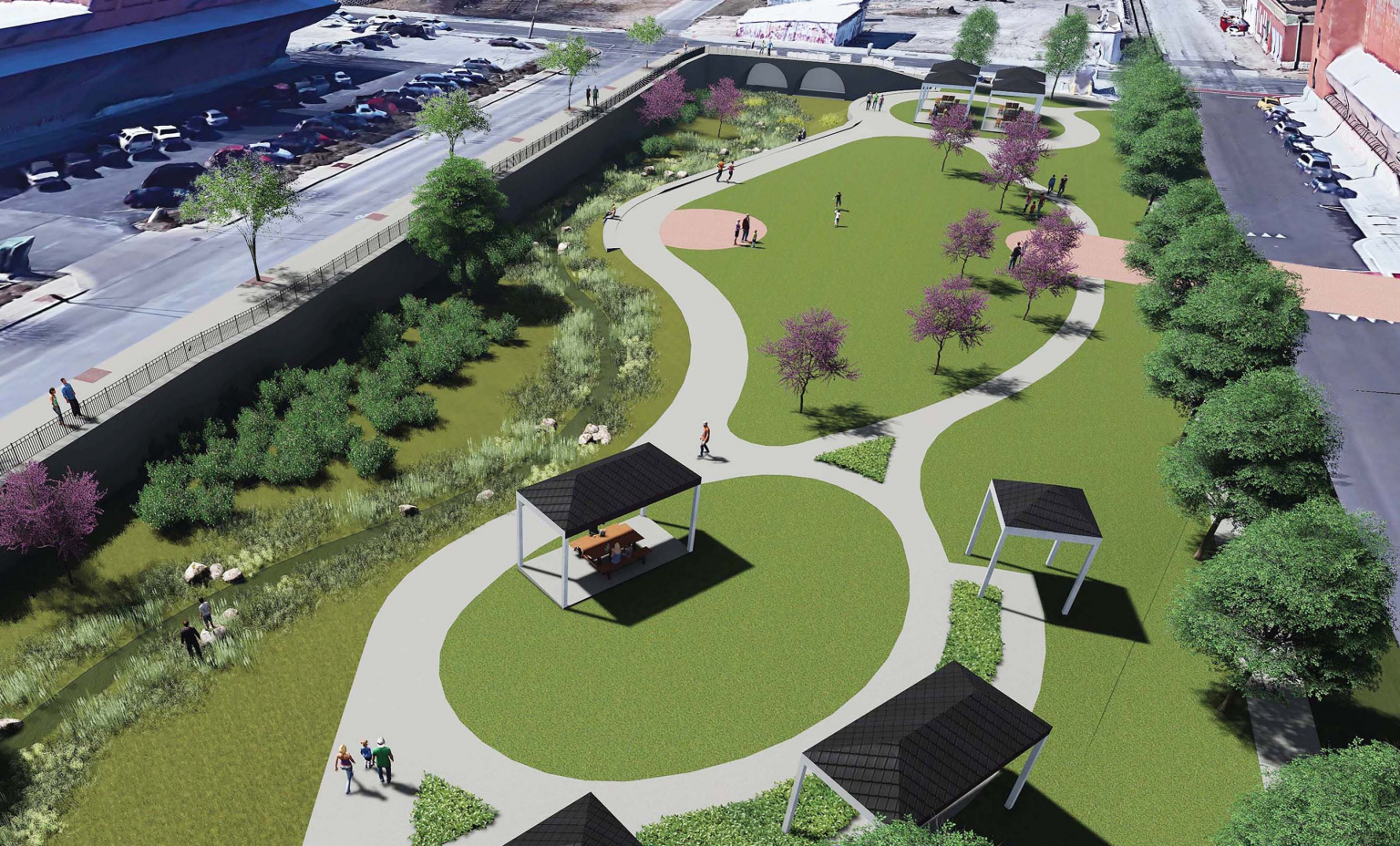City of Springfield Principal Stormwater Engineer Chris Dunnaway presented preliminary concepts for Phase 1 of the daylighting of Jordan Creek through downtown Springfield at a City Council Lunch Workshop on Nov. 19.
Channeled through a series of underground culverts beginning in the 1920s, many visitors to downtown Springfield may not realize the Jordan Creek is flowing beneath their feet. The goal of the daylighting project is to bring the creek to the surface, helping to reduce flooding, improve water quality and provide various outdoor amenities in the heart of downtown.
Phase 1 of the project will involve restoring Jordan Creek to a small natural stream between Boonville Avenue and Main Avenue, along with native landscaping and a new bridge at Campbell Avenue. Sidewalks and a multi-use path will provide pedestrian and bicycle connections, helping to fill in gaps along the Jordan Creek Greenway Trail. Open greenspace, decorative lighting, electrical improvements and other placemaking features will help create an enjoyable natural space for recreation and events.
Funding for improvements to minimize flooding and restore the natural environment around Jordan Creek was approved by voters through the 2017 Level Property Tax renewal. A concept for the project was established via a specialized input process involving multiple city agencies and downtown stakeholders. The top three project priorities identified through the process were flooding and water quality, connectivity and less surface parking, and economic development.
“The improvements and volume of water will look much like stream restoration projects completed along South Creek, Fassnight Creek and along the north branch of Jordan Creek between Silver Springs Park and Smith Park,” Dunnaway explained. “These improvements help slow down, spread out and filter rainwater, while providing greenspace and trails for the entire community to enjoy.”
Visuals and project features presented are still conceptual, Dunnaway added. Further public input will be collected as part of the detailed design phase of the project, beginning in early 2020. Construction is anticipated to begin in late 2021.
The project is estimated to cost $6.8 million.


